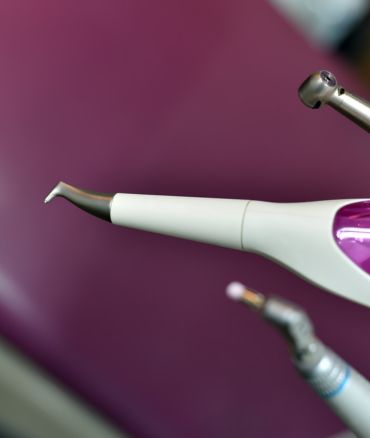Professional dental cleaning
Professional dental cleaning
Dental cleaning, also known as dental prophylaxis, is one of the most demanded dental treatments. It’s a quick and simple procedure that focus on prevention in dentistry.
With dental cleanings, we mainly achieve two things:
- Removing dental plaque, which is a tough, adherent, soft mass that collects on the surface of the teeth. If not removed properly, it mineralizes and becomes tartar, which, due to its rough structure, facilitates further accumulation of dental plaque.
- Removing accumulated extrinsic stains on the teeth. This should not be confused with teeth whitening, as dental cleaning does not alter the color of the teeth.

How often do I have to do a Dental Cleaning?
The million-dollar question: the answer is simple, everyone is different, so it will depend on the case. Many orthodontists, for example, recommend getting a dental cleaning every month for the duration of the treatment. However, this will depend on dental hygiene and the condition of each person.
What happens if I don’t do a proffesional dental cleaning periodically?
You run a higher risk of suffering from cavities, gingivitis, periodontal disease, halitosis or bad breath.
Difference between root planing and scaling and dental cleaning
Dental cleaning is a preventive technique for periodontal diseases or gingivitis. This technique is performed on the surface of the tooth, the gumline, and the interdental spaces, removing tartar and all bacterial plaque, taking 30 to 45 minutes depending on each patient’s situation.
Root planing and scaling, also known as deep cleaning, are performed when the patient suffers from periodontal disease and a space has formed between the gum and the tooth, which we call a periodontal pocket. When this happens, it is necessary to smooth the roots of the teeth to obtain a healthier environment.
When undergoing root planing and scaling, it is important to administer anesthesia to avoid discomfort.



